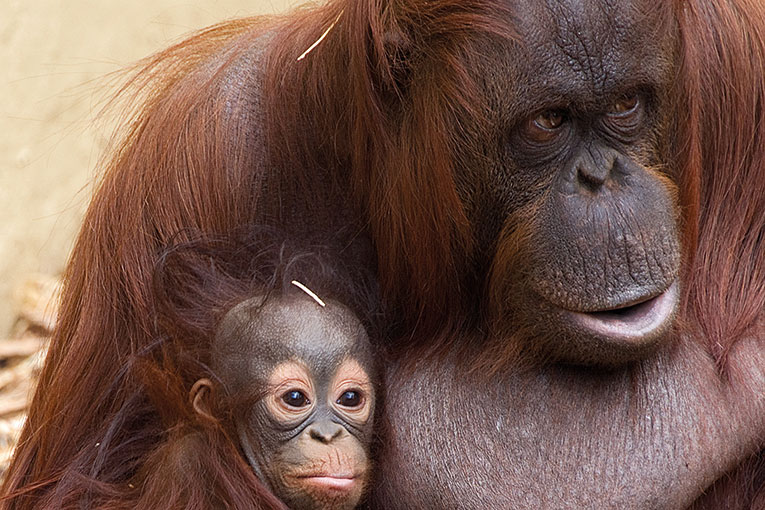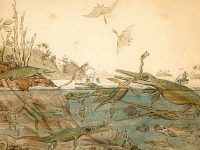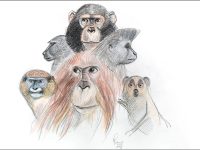
|
ABSTRACT Keywords: debunking explanations, freedom, equality, fraternity, property. Perhaps the earliest registered philosophical advice was that attributed to the first Greek philosophers: «know yourself!». Some contemporary philosophers have fruitfully followed this advice engaging with the scientific study of human nature. Many ethicists (moral and political philosophers), however, respond dismissively when told they should become better informed about evolutionary science. They tend to assume that the reason behind such advice is the existence of evolutionary debunking explanations of morality like that of Sharon Street or Richard Joyce, which (roughly) argue humans hold moral beliefs because holding them facilitated human survival. A common response to those who defend them is that identifying the origin of a belief does not amount to a refutation of the belief. For, suppose that I have a deceitful neighbour who wrongly thinks it is Wednesday and tells me it is Thursday intending to trick me. I end up correctly believing it is Thursday. So even beliefs created by mistaken liars may be correct. None of this, however, justifies failing to be interested in evolution, which bears on many aspects of distributive justice, as I shall here try to illustrate. Evolution Scientist tell us, for example, that twins have similar beliefs about fairness and even offer strangers the same sums when given 100 euros on condition they find somebody to share this with (Wallace et al., 2007). Learning such facts may change our attitudes towards people (we may see as fairer or meaner by birth), towards moral responsibility (we may attribute less responsibility to individuals) or towards our own beliefs about fairness (we may regard them as adaptive responses developed in the course of our evolution). And perhaps we should indeed become suspicious of widely shared moral beliefs that seem to lack a sound rational justification, and can be explained on evolutionary grounds. Consider, for instance, the belief that a sexual contact with an animal is abominable, but factory farming animals is permissible, when the latter harms the animal much more. This incongruence can be explained because having an omnivorous diet an avoiding sex with other species has been adaptive for humans. One may argue that the incongruence is explained by the self-serving nature of these beliefs, which are held by individuals who themselves want to use animals for gastronomical rather than sexual gratification. This is not a competing explanation, however, but an elaboration of the evolutionary story which also explains the prevalence of a preference for human sex and non-human meat. In any case –the ethicist may say– none of this causes difficulties because we can now critically examine our moral beliefs and judge them independently of their adaptive value. For example, although both an omnivorous diet and respect for the environment were adaptive, only the latter is required by morality. Vegetarianism may now become more adaptive in an overpopulated planet. We may see certain beliefs as having emerged for adaptive reasons, without also rejecting all moral arguments or morality itself (as opposed to specific moral beliefs) as an adaptive trick of nature. Moreover – the ethicist may add – we have always known that our beliefs had a cultural basis and so there is no great novelty in claiming they have a genetic or evolutionary basis too. Science, however, has revealed more specific facts. For example, the more dependent on cooperation, luck-sharing and reciprocity a species or tribe is, the more they are likely to reject individuals or states of affairs contrary to the sharing spirit that is essential for their survival. Thus, since hunting, at least by humans, depends very largely on luck, and meat is so nutritious that even a very small amount can save somebody’s life, it is adaptive for hunter-gatherers to develop a strong ethos of luck-sharing. The same applies to precious findings like honey. So when the foraging Ache of Paraguay were told they could keep 100 units of something if they found somebody to share it with, they offered potential sharers over 40 %, during an international, interdisciplinary study of fairness that employed the ultimatum game (Henrich et al., 2005). This response fitted with the cooperative tendencies of the Ache, where hunters invariably share their catch with the rest of the camp (Hauser, 2007). This cultural explanation of their response is compatible with assuming a genetic basis for the response since it would make sense for the Ache to have inherited tendencies appropriate to their environmental adaptation. The lowest offers sampled in this international study were made by the slash-and-burn horticulturalist Machiguenga of Peru, who offered as little as 15 %. This also fitted with their life-style involving little cooperation, trade or sharing beyond the family unit. Within all groups, moreover, individuals also displayed different dispositions to share when they were told different stories about other individual’s contribution to the good up for distribution. The general conclusion of the study was that no human would make offers above 50 % and will reject offers of less than 15 %. Like different tribes, different species which depend on sharing, reciprocity, and cooperation to different degrees will display stronger or weaker propensities to share, cooperate or reciprocate. Capuchin monkeys may need cooperation to survive even more than the larger chimpanzee, and so may display stronger disposition to suffer in order to punish non-cooperators in ultimatum games (Jensen et al., 2007; De Waal, 2009; Proctor et al., 2013). Is this something philosophers have always known? Plato and Montesquieu presented different forms of government as having emerged in different climates, and Marx portrayed our beliefs as effects of our mode of subsistence, but we did not previously have the details of the empirical studies available today. Philosophers have described the negative effects of inequality in humans and deemed them the root of a preference for egalitarian distributions and a disposition to punish non-cooperators. But we now have, among others, studies of «spite» in primates and statistics, like those of epidemiologist Richard Wilkinson, on the effects of inequality on physical and mental health, longevity, suicide, teenage pregnancy, drug use, pollution, and other social problems (Wilkinson i Pickett, 2010). I am not claiming that although philosophers have often announced what scientists later discovered, they have now become redundant. Not at all. Distribution ethicists are essential today, as we face difficult distributive decisions about taxes, pensions, healthcare rationing or carbon allowances, and most people are unbelievably mistaken about what is just or right, and still expect to be enlightened by people like priests and politicians who know about neither ethics nor science. I am claiming that philosophers should become more aware of evolutionary science, for it can enlighten us even regarding central concepts in our field, like «Liberté, Egalité, Fraternité». Let me illustrate. ‘Liberté’ Like other great apes, elephants and some cetaceans, humans belong to a group of unusually intelligent self-conscious mammals, capable of mirror self-recognition, which for short I call «mammalian persons». All these persons possess exceptionally large brains, well-equipped with mirror neurons and spindle neurons and display the capacity for imitation, cooperation, reciprocity, communication, and cultural transmission (Casal, 2011). «Mammalian persons» can imagine themselves in places other than their present location, have a sense of themselves as thinking beings that exist over time, and make plans for the future that they display long-term persistence in realising. As they are also endowed with long-term emotional memory, these plans often involve other individuals chosen on the basis of past behaviour. Some argue that these uncommon features give rise to an interest in liberty that is non-reducible to the interest in suffering-avoidance they share with other creatures (Cochrane, 2012). A fish, for example, may experience a decline in welfare if trapped into a small pond where it cannot exercise adequately. A person trapped in a cage, however, experiences not only a decline in welfare but the deprivation of liberty that results from confinement into a life other than the one the subject had planned, and continues to want. |
«Among great apes like us, though certain rivalry also exists, fraternity is a survival-enhancing sentiment» |
|
 Ron Cohn / The Gorilla Foundation Ron Cohn / The Gorilla FoundationLike other great apes, elephants and some cetaceans, humans belong to a group of unusually intelligent self-conscious mammals, capable of mirror self-recognition. In the picture, Koko the gorilla examines her own mouth in a mirror held by doctor Patterson, head of The Gorilla Foundation, a project studying interspecies communication. |
||
 Bill Bouton Bill BoutonIn animal species like the pipe-fish or the jacana where the males do the parenting work, it is large, territorially aggressive females that compete for the male labour. In the picture, a jacana in the Manu Natural Park, Peru. |
||
|
‘Fraternité’ «Mammalian persons» are extreme k-strategists; i.e. they invest enormously in very few offspring rather than very little on an enormous number of descendants. The attention required by each offspring is such that pregnancies are typically singleton and followed by several years of lactation and infertility. Among orang-utans, births are interspersed by 38 week pregnancies followed by six to eight years of lactation, thereby avoiding sibling competition and allowing mothers to devote a decade to educating each offspring. In contrast with species where survival depends on the ability to kill, outcompete, or even eat one’s siblings, among great apes like us, though certain rivalry also exists, fraternity is a survival-enhancing sentiment, welcome by our overworked mothers. The great educational investment needed by members of these species requires enormous maternal self-denial but pays off because «mammalian persons» are very long-lived. Elephants gestate for 22 months, and often remain under their mother’s supervision until their mid-teens but can then survive for over eighty years. The magnitude of «mammalian persons»’ maternal investment explains the female interest in deciding whose offspring they will devote themselves to, and thus their determination to maintain mate choice, and the distress they experience when raped or forced to cohabit with a male they do not want. This investment also explains mothers’ determination to keep their offspring within sight, and the distress they experience when their offspring are taken or killed. Mothers persistently seek and then attempt to resuscitate their offspring, sometimes carrying the corpse for weeks, with the group slowing down its march to accommodate the mother’s erratic behaviour, despite the collective disadvantages of corpse-carrying or other death rituals. Corpse-carrying is not only observed in apes, but also in cetaceans. Gorillas and elephants even assist with the burials, and accompany mothers who revisit graves. When it is the needed mother that dies, older siblings can act as their surrogates, which is another reason why for us fraternity enhances survival. |
«Throughout human history, political and religious leaders have gained power through armies of descendants that raided other groups» | |
 Bill Bouton Bill BoutonUntil recently, humans lived in very extended families, with fraternal bonds linking many in one cohort, which could contribute to the existence of egalitarian relations within that circle. |
||
|
‘Egalité’ While males can in principle sire thousands of offspring, females can have very few offspring, and having invested in long pregnancies and lactation, they tend not to abandon them, when they are abandoned themselves. This permits fathers to forsake their offspring to pursue other females who will raise more offspring for them. This imbalance in procreation investments creates a tendency towards inequality. It makes male reproductive success depend on the ability to kill or defeat the greatest number of sexual rivals, rather than on empathy and altruism towards one’s offspring, as the offspring mother’s empathy and altruism normally suffices to avoid the offspring’s death. In virtually all animals this polygynous pattern (involving one male mating with several females) results in males acquiring certain secondary traits. Compared to females, males become larger and better armed or ornamented; more aggressive; more drawn to competitive interaction and aggressive play; more likely to engage in escalating violence, leading to injury or death; more prone to high-risk behaviour, particularly when pursuing females; more eager to mate; less discriminating about mates; more likely to die prematurely in accidents, combat, or from disease; less long-lived through physiological malfunction, such has testosterone-induced heart attacks; and conceived and born in larger numbers, roughly balancing their dying prematurely in larger numbers too from violence, disease, malfunction, or imprudence (Casal, 2011). In animal species like pipe-fish or jacanas where the males do the parenting work, it is large, territorially aggressive females that compete for the male labour, as it is not maleness as such but rather inequality in childcare that gives rise to this trait set. Besides being the product of inequality in childcare, these secondary differences can lead to further differences or tertiary inequalities, such as when the larger, more aggressive sex monopolises the most nutritious food source, or when the larger, more aggressive individuals achieve greater reproductive success and multiply their resource control through extended families. Throughout human history, political and religious leaders have gained power through armies of descendants that raided other groups, increasing their resource control further and impregnating – genetic testing suggest – astonishing numbers of women. For example, 8 % of North Asians, and 0.5 % of humans appear to descend from Genghis Khan and his close male relatives (Zerjal, 2003). Polygyny is thus connected not only to inequality between the sexes and within each sex, but also to intra-group and inter-group inequality and violence. These conflicts can in turn be exacerbated by various forms of in-group bias, such as nepotism or racism. Ethnographic data on primitive human societies shows both that they were clearly stratified and that polygamy was common. Marxists were in fact quite wrong to assume that securing sexual access to women through resource control was a recent bourgeois invention and that humans were equal until technological development enabled them to produce a surplus that could feed an idle class (Cancian, 1966). |
«Marxists were in fact quite wrong to assume that securing sexual access to women through resource control was a recent bourgeois invention» |
|
 Noborder NoborderGiven all these traits, humans could be expected to possess strong egalitarian propensities. Inequality among humans, however, is enormous, and growing. In the picture, the Coast Guard boards a boat full of immigrants. |
||
|
PROPerty As these observations on Marxism suggest, science can enlighten us regarding even key concepts in distributive justice, like «social stratification» or «property» which may seem less «natural» and even more «human» than the French Revolution motto. Consider, for example, a scientific perspective on the frequently cited passage with which Rousseau starts the second part of On the Origins of Inequality: The first person who, having enclosed a territory claimed it is mine and found people simple enough to believe him was the true founder of civil society. What crimes, wars, murders, what miseries and horrors would the human race have been spared, had some one pulled up the stakes or filled in the ditch and cried out to his fellow men: «Do not listen to this imposter. You are lost if you forget that the fruits of the earth belong to all and the earth to no one!» First, if an individual behaves in this way, it is because it already belongs to a territorial species. Thus, it is species membership, and not the individual’s decision, that is necessary and sufficient to explain the behaviour. Second, among «mammalian persons», and not pipe-fish or jacanas, territorial displays are typically male. Third, male mammalian persons rarely display effective control just verbally. Thus, the issue was not that others «believed» him, but that those who did not had to confront him. It is true, however, that even without violent threats, humans may, like other primates, express implicit respect for property through practices like begging (Brosnan, 2011), and considering fruits in the tree and empty caves unowned, and fruits in somebody’s hand and occupied caves as taken (Maynard-Smith and Parker, 1976). They also weigh losing something as worse than not gaining it. Finally, just like other species that depend on constructions, or like the birds that attack those who steal twigs from other birds’ nests, they may defend not only their own producer’s entitlements but those of others (Stake, 2004). All this gives us a better understanding than Rousseau’s of how humans developed a sense of property. Some would reject such explanations because they fear they will justify inequality or make us pessimistic about reducing it. This is not so, however, and not only because we need not accept all upshots of evolution. A tendency to respect first occupancy, for example, can protect weak occupants and work against anyone occupying more than one spot, and the same applies to a tendency to defend the nests or other constructions of absent or weaker individuals. Moreover, it is not the case that there was a noble savage who was then corrupted by civilisation, as Rousseau pessimistically imagined. On the contrary, over time, with the repeated social interaction the Machiguenga lack, humanity appears to have become more sharing, more inclined to keep agreements, more «noble», that is, and less polygynous and prone to cheating, less dimorphic and gender unequal and less violent and brutal towards women, children and each other (Casal, 2011). Philosophy As the previous observations on Rousseau suggest, becoming informed about the relevant scientific findings can help us make the most plausible interpretation of what philosophers have said, for example, ruling out literal readings. Having become informed, however, the philosopher’s work is still to be done. Evolutionary science can be inconclusive, fragmentary, inconsistent, partly scientific partly speculative, contestable, influenced by ideology and based on published experiments that others cannot reproduce. An example of inconclusiveness is the evidence on inequality. Our species now clearly displays a growing tendency to become and remain pair-bonded, like the small apes (Henrich, Boyd and Richerson, 2012). Some have even argued that, in fact, humans combine aspects of the three reproductive strategies of the other apes, including the promiscuous bonobo (Stewart and Thomas, 2013). Both the parenting cooperation of the monogamous species and the matriarchal social organisation of the bonobo are associated with reduced inequality. Until recently, in addition, humans lived in very extended families, with fraternal bonds linking many in one cohort, which could contribute to the existence of egalitarian relations within that circle. Humanity’s success is also due to its high level of cooperation (Bowles and Gintis, 2011), a trait associated with egalitarian instincts in other highly cooperative species like the capuchin monkey (De Waal, 2009). Finally, we were foragers during most of our evolution, a mode of subsistence associated with deeply egalitarian, luck-sharing practices (Henrich et al., 2005). Given all these traits, humans could be expected to possess strong egalitarian propensities. Inequality among humans, however, is enormous, and growing (Milanovic, 2011) even as monogamy also grows (Henrich et al., 2012). Since we may possess natural propensities with contrary effects (Boehm, 1999), that interact with different environments in complex ways, science is inconclusive. And even if it was not, it could not make the ethicists redundant. Ethicists are still needed to discuss, for example, the moral permissibility of coercively correcting harmful inequalities. My claim, however, is that even if ethicists remain necessary, they would perform their very necessary work better if they took more interest in the relevant data scientists have unveiled. We have, of course, far more to read now than in ancient Greece, but the early philosopher’s advice, «know yourself!» remains sound. |
«Even if ethicists remain necessary, they would perform their very necessary work better if they took more interest in the relevant data scientists have unveiled» | |
REFERENCES
Boehm, C., 1999. Hierarchy in the Forest. The Evolution of Egalitarian Behavior. Harvard University Press. Cambridge, Massachusetts.
Bowles, S. and H. Gintis, 2011. A Cooperative Species. Princeton University Press. Princeton/Oxford.
Brosnan, S., 2011. «Property in Non Human Primates». New Directions for Child and Adolescent Development, 132: 9-22. DOI: <10.1002/cd.293>.
Cancian, F., 1966. «Maximization as Norm, Strategy and Theory. A Comment on Programmatic Statements in Economic Anthropology». American Anthropologist, 68: 465-470. DOI: <10.1525/aa.1966.68.2.02a00110>.
Casal, P., 2011. «Love not War. On the Chemistry of Good and Evil». In Gosseries A. and Y. Vanderborght (eds.), 2011. Arguing About Justice. Essays for Philippe Van Parijs. Louvain University Press. Louvain-la-Neuve.
Cochrane, A., 2012. Animal Rights without Liberation. Columbia University Press. New York.
De Waal, F., 2009. The Age of Empathy. Harmony. New York.
Hauser, M., 2007. Moral Minds. Harper Collins. New York.
Henrich, J. et al., 2005. «"Economic Man" in Cross-cultural Perspective: Behavioral Experiments in 15 Small-scale Societies». Behavioural and Brain Sciences, 28: 795-855. DOI: <10.1017/S0140525X05000142>.
Henrich, J.; Boyd, R. and P. Richerson, 2012. «The Puzzle of Monogamous Marriage». Philosophical Transactions of the Royal Society B: Biological Science, 367: 657-669. DOI: <10.1098/rstb.2011.0290>.
Jensen, K.; Call, J. and M. Tomasello, 2007. «Chimpanzees Are Rational Maximisers in an Ultimatum Game». Science, 318: 107-109. DOI: <10.1126/science.1145850>.
Maynard-Smith, J. and G. A. Parker, 1976. «The Logic of Asymmetric Contests». Animal Behaviour, 24: 159-175. DOI: <10.1016/S0003-3472(76)80110-8>.
Milanovic, B., 2011. The Haves and the Have-Nots: A Brief and Idiosyncratic History of Global Inequality. Basic Books. New York.
Proctor, D. et al., 2013. «Chimpanzees Play the Ultimatum Game». PNAS, 110, 2070-2075. DOI: <10.1073/pnas.1220806110>.
Rousseau, J., 1994. Del contrato social. Discurso sobre las ciencias y las artes. Discurso sobre el origen y los fundamentos de la desigualdad entre los hombres. Alianza. Madrid.
Stake, J. A., 2004. «The Property "Instinct"». Philosophical Transactions of the Royal Society B: Biological Sciences, 359(1451): 1763-1774. DOI: <10.1098/rstb.2004.1551>.
Stewart, S. and A. G. Thomas, 2013. «The Ape that Thought It Was a Peacock. Does Evolutionary Psychology Exaggerate Human Sex Differences?». Psychological Inquiry, 24(3): 137-168. DOI: <10.1080/1047840X.2013.804899>.
Wallace, B.; Cesarini, D.; Lichtenstein, P. and M. Johannesson, 2007. «Heritability of Ultimatum Game Respondent Behaviour». PNAS, 104(40): 15631–15634. DOI: <10.1073/pnas.0706642104>.
Wilkinson, R. and K. Pickett, 2010. The Spirit Level. Why Equality is Better for Everyone. Penguin. London.
Zerjal, T. et al., 2003. «The Genetic Legacy of the Mongols». American Journal of Human Genetics, 72: 717-721. DOI: <10.1086/367774>.





